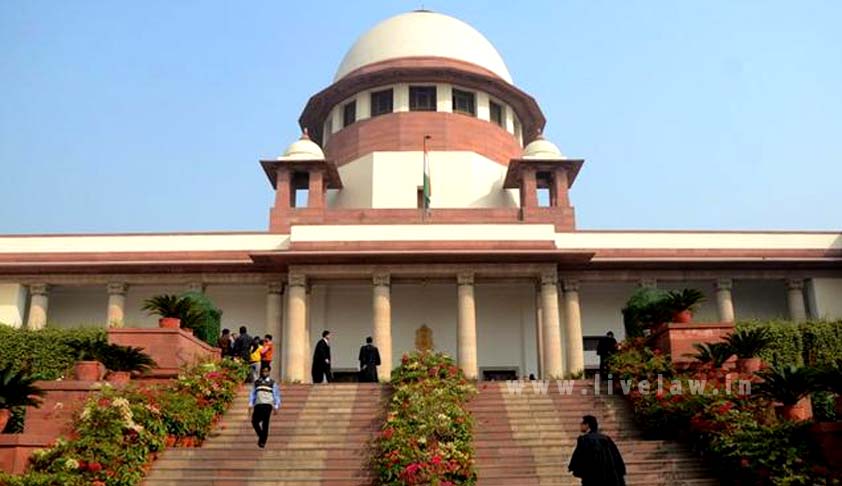Difference between Judicial Separation and Divorce
By Advocate Rohit Yadav
In Indian society, marriage is considered as a sacrament. It is an irrevocable relationship between husband and wife established through rituals and customs. Before 1955, there was no relief available to either party in case of a failed marriage. They had to continue with the marriage and couldn’t break the marriage. After the passage of the Hindu Marriage Act, 1955 things changed in favor of both parties to the marriage. Now, in case of a failed marriage, the parties do not need to suffer in the marriage and can easily break their matrimonial alliance through Judicial Separation or by a Decree of Divorce.
The Marriage Laws (Amendment) Act, 1976 makes the ground for judicial separation and divorce common. It is upon the parties to choose between the two methods of dissolution.
The legal effect of judicial separation and divorce is however different. A divorce puts the final nail in the coffin of marriage whereas judicial separation leaves the scope of settlement between parties.
What is judicial separation?
Either party to the marriage, whether solemnized before or after commencement of the Hindu Marriage Act, 1955 can under Section 10 of the Act file a petition for judicial separation. After a decree is passed in favor of the parties, they are not bound to cohabit with each other. Some matrimonial rights and obligations, however, continue to subsist. They cannot remarry during the period of separation. They are at liberty to live separately from each other. Rights and obligations remain suspended during the period of separation. The grounds for judicial separation are the same as for divorce. Under Section 13(1), judicial separation may be sought on the following grounds:
Adultery: If another spouse had voluntary sexual intercourse with any person other than his or her spouse after solemnization of marriage.
Cruelty: If after solemnization of marriage, one of the spouses treats the other with cruelty.
Desertion: If the other party has deserted the spouse for a continuous period of 2 years without any reasonable ground immediately preceding the presentation of the petition.
Conversion: If one of the spouses has ceased to be a Hindu.
Insanity: If the other party is of unsound mind or has been suffering continuously from mental disorder of such a kind and to such an extent that the petitioner cannot live with the other party.
Leprosy: If the other party has been suffering from a virulent and incurable form of leprosy.
Venereal disease: If the other party has been suffering from venereal disease in a communicable form.
Renounced the world: If the other spouse has renounced the world by entering any religious order. Has not been heard alive for seven years.
In addition to these grounds some of the grounds are exclusively reserved for women:
The husband has more than one wife living: If the husband had married before the commencement of the Act and after the commencement of the Act has again remarried either of the wives can present a suit for judicial separation provided the other wife is alive at the time of presentation of the petition.
Rape, Sodomy or Bestiality: If a man is guilty of an offense like rape, sodomy or bestiality, the wife can present a petition for judicial separation.
Marriage before the age of fifteen years: If the marriage of women was solemnized before attaining 15 years of age, on her attainment of 15 years she could repudiate it but before attaining the age of 18 years.
Can maintenance be claimed by wife during the period of judicial separation?
In case of judicial separation, the court can also deal with the questions of maintenance of wife, custody of children, and property.
In the case of Sohan Lal vs. Kamlesh it was held that in case of judicial separation, a wife is allowed to claim maintenance from husband in case she is not able to maintain herself.
What to do in case after judicial separation where the parties want to resume cohabitation?
Since a decree for judicial separation is a judgment in rem, if the parties want to resume cohabitation, it is necessary for them to get the order of judicial separation annulled by the court. Normally, the court rescinds the degree on presentation of the petition by consent of both the parties.
What is the purpose of a judicial separation?
Judicial Separation is a step prior to a divorce. The purpose of judicial separation is to provide an opportunity for the parties to reconcile their difference.
What is divorce?
In case of divorce, parties cease to be husband and wife. Divorce puts an end to the marriage and all mutual rights, and obligations stand terminated. The parties are free to marry again.
Grounds for divorce?
The grounds for divorce are mentioned under Section 13(1). The grounds of divorce and judicial separation are the same. Apart from these grounds, the wife may seek divorce on additional grounds as discussed above.
The parties are also free to present a petition in case there is no resumption of cohabitation between the parties to the marriage for a period of one year or more after the passing of judicial separation by the court. In such a case, the court will not require proof of any of the grounds of divorce. Merely a presentation of the petition will be sufficient for the court to grant a decree of divorce.
In case, the court had ordered restitution of conjugal rights under Section 9 of the HMA, 1955 and the parties do not comply with the decree of the court and fail to cohabit. In such a case, on presentation of the petition for divorce the court will not enquire into any grounds for divorce and will pass a decree of divorce on the grounds of failure of restitution of conjugal rights.
In a petition for divorce, if the petitioner cannot prove grounds for divorce, or the court is not satisfied that the act is so grave to pass a decree of divorce it has the power to pass a decree of judicial separation even if the petitioner did not ask for it. In the case of Vimlesh v. Prakash Chandra Sharma, the court held that a single instance of cruelty is not so grave to pass a decree of divorce.
Thus, the court granted a decree of judicial separation to provide an opportunity for the parties to reconcile.
Additional grounds for divorce
The Marriage Law (Amendment) Act, 1976 provides an additional ground for divorce under Section 13(b). Where both the parties feel that the marriage is torn and there is no scope of reconciliation, both the parties may by mutual consent present a decree of divorce under Section 13(b) whereby the court will not enquire for any reason for divorce and will grant a decree in favor of the parties if both of them want a divorce. Under the Act, a period of 6 months for reconciliation is granted on presentation of a petition for divorce by mutual consent. However, in the case of Nikhil Kumar V. Rupali Kumar, the Supreme Court has done away with the mandatory reconciliation period of six months. Now, divorce on the ground of mutual consent can be granted on the presentation of the petition, and parties do not need to wait for six months.
Difference between judicial separation and divorce
JUDICIAL SEPARATION / DIVORCE
Can file a petition at any time post marriage.
Only one stage of judgment. If grounds are satisfied, decree granted.
Temporary suspension of marriage.
Cannot remarry after the passage of decree.
It is a ground for divorce.
A single instance of adultery sufficient for Judicial Sep.
The possibility of reconciliation.
Can file only after completion of one year of marriage.
Judgement is a two-step process. First reconciliation, then divorce.
Brings marriage to an end.
Can remarry once decree in favor of divorce is passed.
Living in an adulterous relationship necessary.
No possibility of reconciliation.
How to file a petition for divorce or judicial separation?
A petition for divorce or judicial separation can be filed in a district court within the jurisdiction of whose:
The marriage was solemnized.
The respondent, at the time of presentation of petition, resides.
The parties to marriage last resided together.
The petitioner is residing, in case the respondent is outside territory of India.
Under Section 21 of the Act, all proceedings under this Act shall be regulated by the Code of Civil Procedure.
Under order VII, rule 1 of CPC every petition for divorce or judicial separation must contain:
The place and date of marriage
Affidavit of being a Hindu
Name, status, and domicile of husband and wife.
Name of children, their sex, and date of birth.
Full particulars of any litigation filed before the presentation of the petition for divorce.
Evidence of the grounds for divorce or judicial separation. For example- in case of cruelty, a specific act of cruelty, medical report, place of cruelty, etc.
After filing the petition, the other party is summoned. Both parties are required to furnish evidence to strengthen their claim.
After furnishing of evidence is over, the judge hears the argument of each side and passes a decree. Appeals against the decision of the lower court can be made in a higher court.
Some relevant questions
Is it possible to file for a divorce while the period of judicial separation is in continuance?
At any time after the pronouncement of a decree of judicial separation, a petition for divorce can be filed. However, where judicial separation has been taken within 12 months of marriage, a petition for divorce can be presented after one year of marriage.
Can a decree of judicial separation be converted to a decree of divorce?
Yes, a decree of judicial separation is a ground for divorce. After a decree of judicial separation is granted and petition for converting it into divorce is presented, the court will not inquire into any grounds for divorce and will grant a divorce.
Does judicial separation mean living in different homes? Or can one undergo a judicial separation while living inside one home?
Judicial separation does not require spouses to stay in different places. They can reside under a common roof. Only their conjugal duties towards each other come to an end.
What to do in case husband tries to establish a physical relationship forcefully with his wife while undergoing a judicial separation?
In case husband tries to establish a physical relationship with his wife during the period of judicial separation he will be charged under Sec. 376 (A) of the IPC, wherein he will be punished with imprisonment up to 2 years and a fine.
Conclusion:
Before 1955, there was no provision for separation or divorce. Reforms introduced in the Hindu Law by way of legislation and amendments are welcome to step by the government. The two relieves granted by the HMA, 1955 have proven to be effective in resolving disputes between parties by giving them an opportunity to reconcile their difference or by releasing them from marital ties.
Disclaimer:
The information provided in the article is for general informational purposes only, and is not intended to constitute legal advice or to be relied upon as a substitute for legal advice. Furthermore, any information contained in the article is not guaranteed to be current, complete or accurate. If you require legal advice or representation, you should contact an attorney or law firm directly. We are not responsible for any damages resulting from any reliance on the content of this website.












